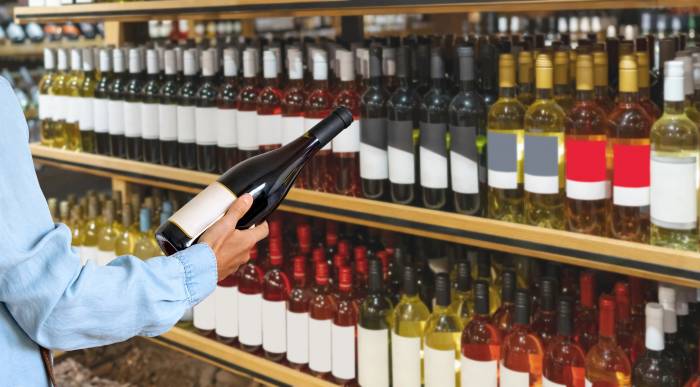71% of Europeans Cut Back on Alcohol as Non-Alcoholic Drinks Dominate Market
Younger consumers drive shift toward healthier, plant-based beverages while similar trends reshape drinking habits in the United States
2025-10-29

A recent study by Circana has revealed a significant shift in alcohol consumption habits across Europe, with 71 percent of consumers now buying, stocking, and drinking less alcohol than before. The data also shows that nearly a quarter of people aged 25 to 35 have stopped purchasing alcohol altogether. This change reflects deeper transformations in consumer preferences, expectations, and behaviors that are challenging long-standing industry norms.
Over the past year, sales of alcoholic beverages in Europe fell by 1.8 percent in value, reaching 68 billion euros. In contrast, non-alcoholic drinks saw a 5.1 percent increase, totaling 97 billion euros. As a result, non-alcoholic soft drinks, functional beverages, and other low- or no-alcohol alternatives now make up almost 60 percent of the European beverage market.
Circana’s research points to evolving lifestyles and consumption rituals as key drivers behind these changes. Many consumers are choosing drinks they consider more refreshing (55 percent), healthier with plant-based ingredients and better taste (27 percent), better for their health overall (22 percent), and more aligned with their current lifestyle (21 percent). This has led to increased demand for a wide range of beverages such as functional drinks, protein-enriched options, and kombucha.
Ananda Roy, a strategic expert at Circana, says the message for companies is clear: growth can no longer be achieved by repeating old models. Instead of relying on short-term disruptive approaches, businesses must rethink their strategies from the ground up. This includes reimagining product design, packaging, pricing strategies, distribution channels, and consumer relationships.
The study also highlights the need for a more cross-category approach. Alcohol brands are diversifying by launching low- or no-alcohol alternatives to attract younger and health-conscious consumers. At the same time, non-alcoholic beverage companies are entering traditional alcohol markets. This blurring of boundaries is creating new consumption opportunities and helping brands stand out in an increasingly crowded market. According to Circana’s findings, 55 percent of Europeans now expect bars to routinely offer non-alcoholic beer.
This trend is not limited to Europe. In the United States, researchers at Harvard University have identified similar patterns. A recent Gallup poll found that only 54 percent of American adults now say they drink alcohol—the lowest level since Gallup began tracking this data in 1939. In 2022, that figure was 67 percent. The decline is partly attributed to the rise of the “sober curious” movement and popular initiatives like “Dry January” and “Sober October.”
Harvard experts also point to other factors influencing this shift. Wearable fitness trackers now monitor not just daily steps but also physiological effects from drinking alcohol—such as increased heart rate, higher blood pressure, and disrupted sleep. Marisa Silveri, an associate professor of psychiatry at Harvard Medical School, notes that these devices reinforce the message that no level of alcohol consumption is truly safe. She believes that advances in connected technology are contributing to Americans’ declining interest in alcohol.
Another factor is the growing use of diabetes medications like Ozempic, which are often prescribed for obesity. These drugs have shown remarkable effectiveness in reducing alcohol consumption as well. Joji Suzuki, another associate professor of psychiatry at Harvard, explains that clinical trials are underway to evaluate whether GLP-1 medications can treat alcohol use disorders. Several companies are now seeking FDA approval for this purpose. Given that up to 70 percent of U.S. adults may be affected by obesity, the impact on national alcohol consumption could be substantial.
Researchers also note the increasing availability of appealing alternatives to alcoholic beverages and a rebalancing effect after excessive drinking during the pandemic years. This has led to what some describe as a “wake-up call” among consumers.
The changes underway represent more than just a shift in what people drink—they signal a new culture around taste and awareness on both sides of the Atlantic. Each glass now reflects changing attitudes toward health, lifestyle, and social habits in Europe and the United States alike.
Founded in 2007, Vinetur® is a registered trademark of VGSC S.L. with a long history in the wine industry.
VGSC, S.L. with VAT number B70255591 is a spanish company legally registered in the Commercial Register of the city of Santiago de Compostela, with registration number: Bulletin 181, Reference 356049 in Volume 13, Page 107, Section 6, Sheet 45028, Entry 2.
Email: [email protected]
Headquarters and offices located in Vilagarcia de Arousa, Spain.